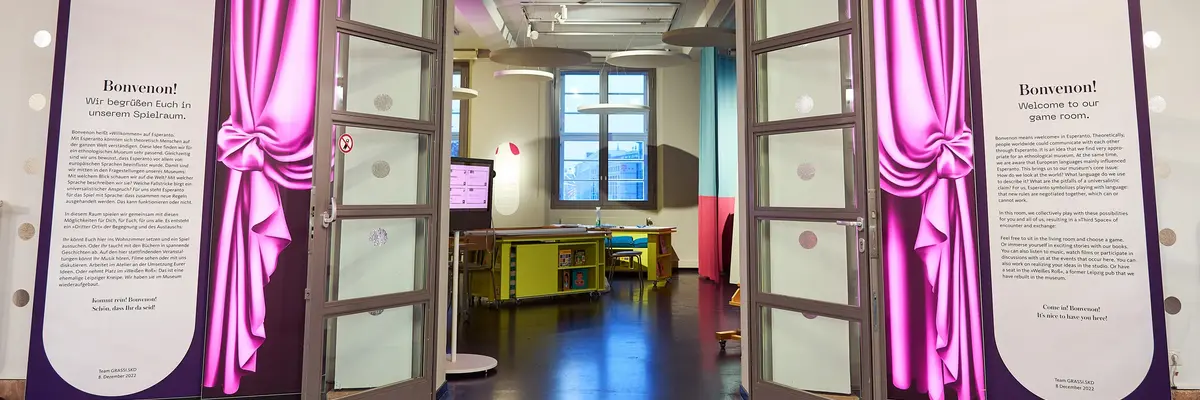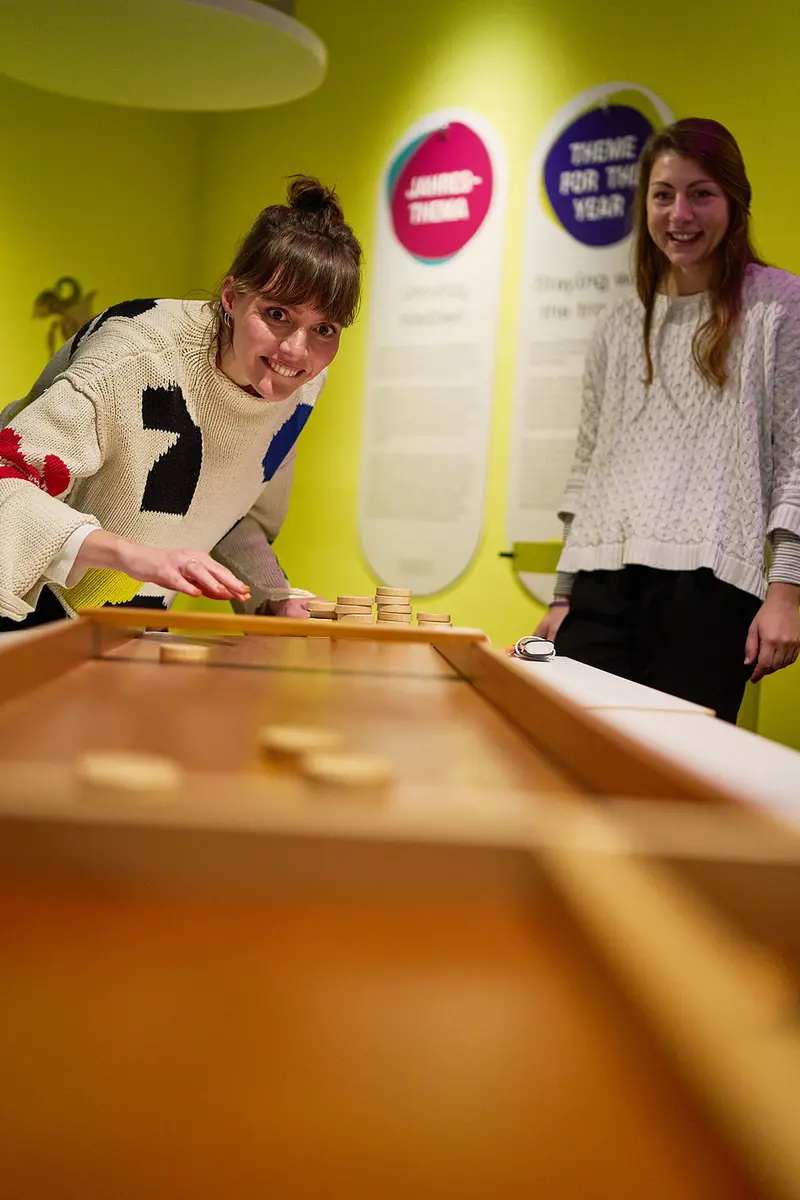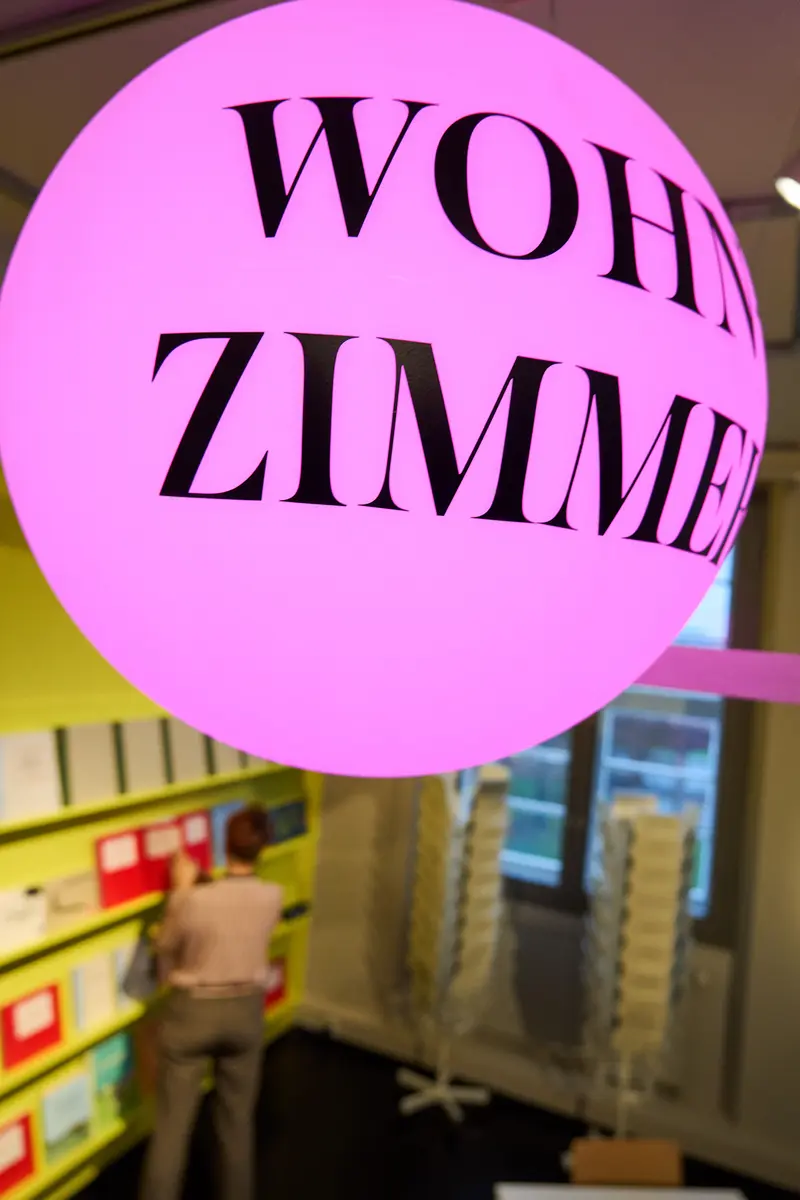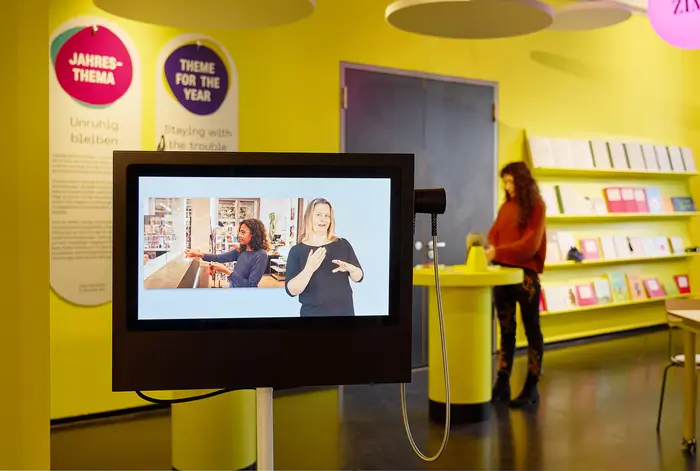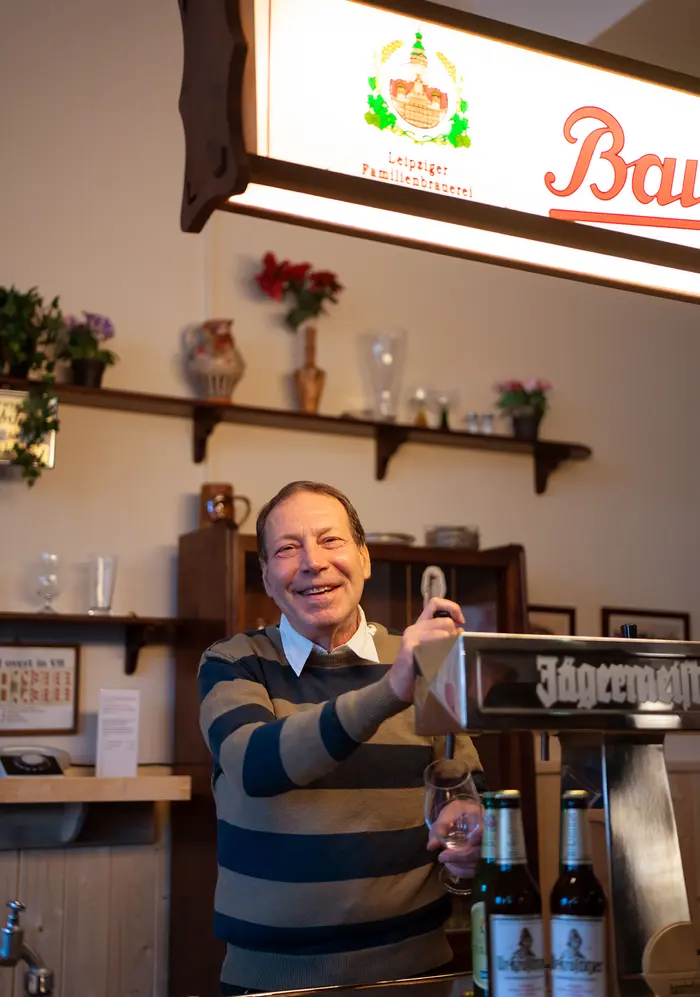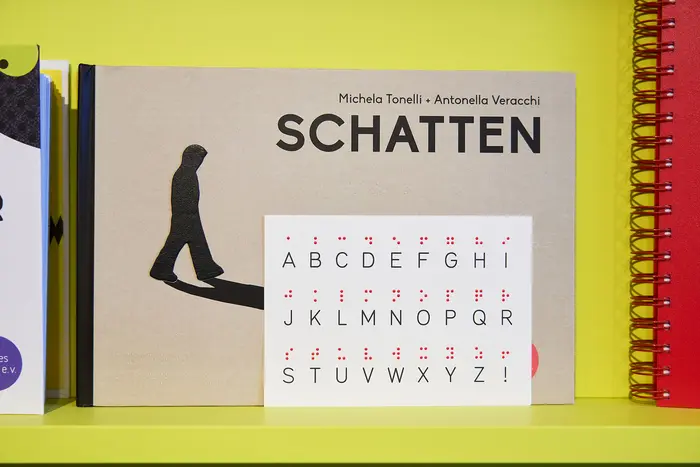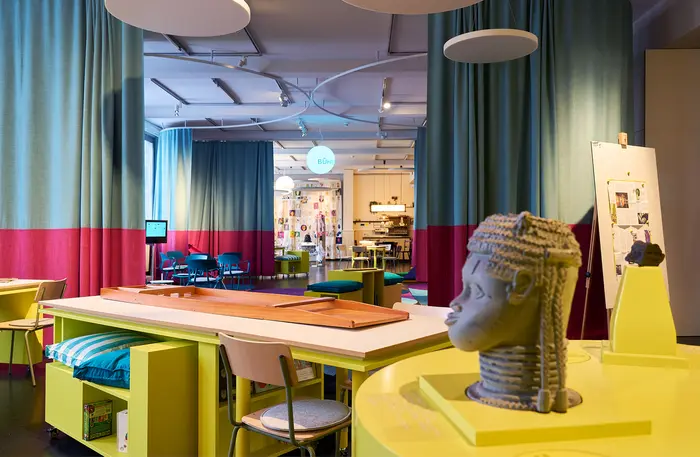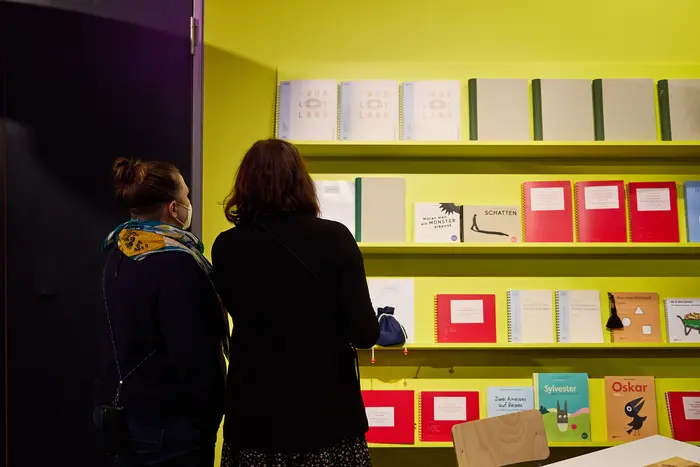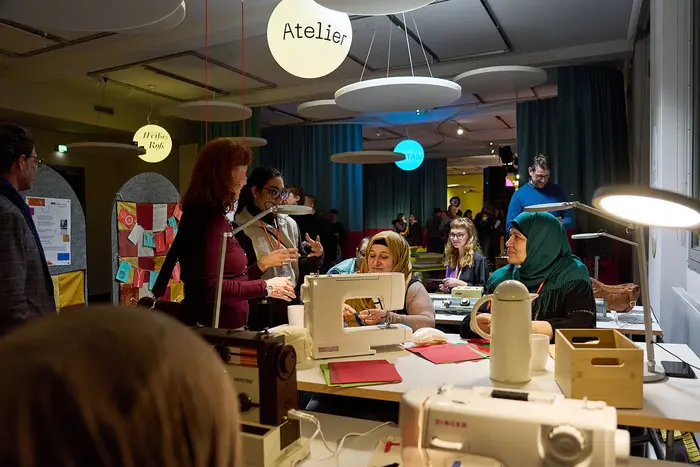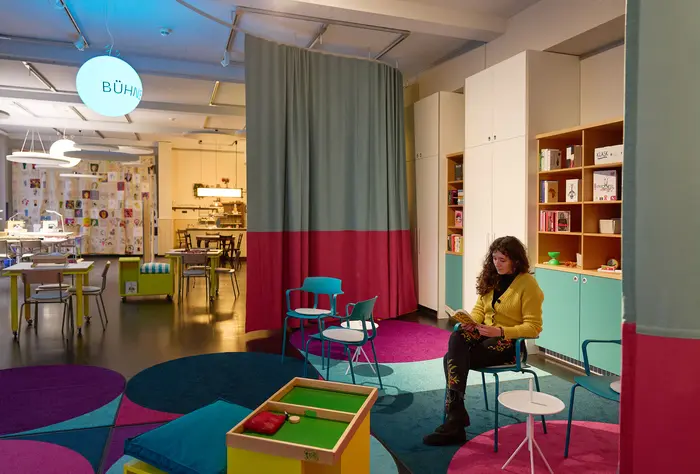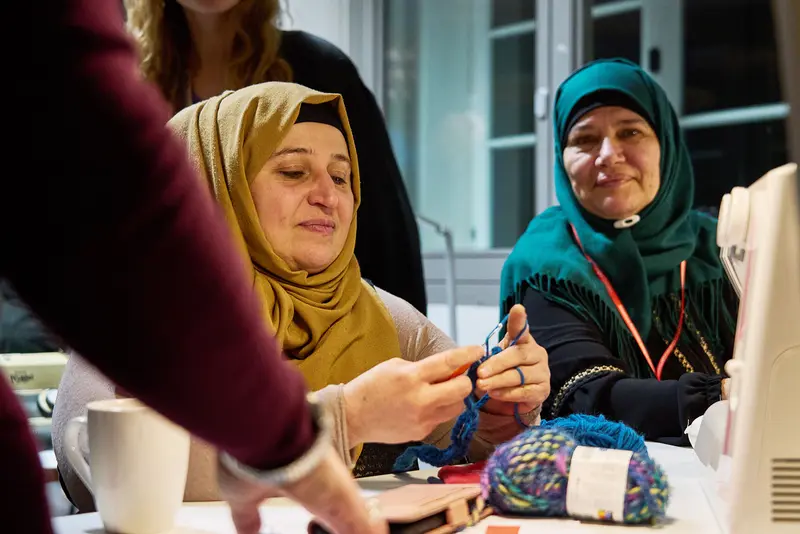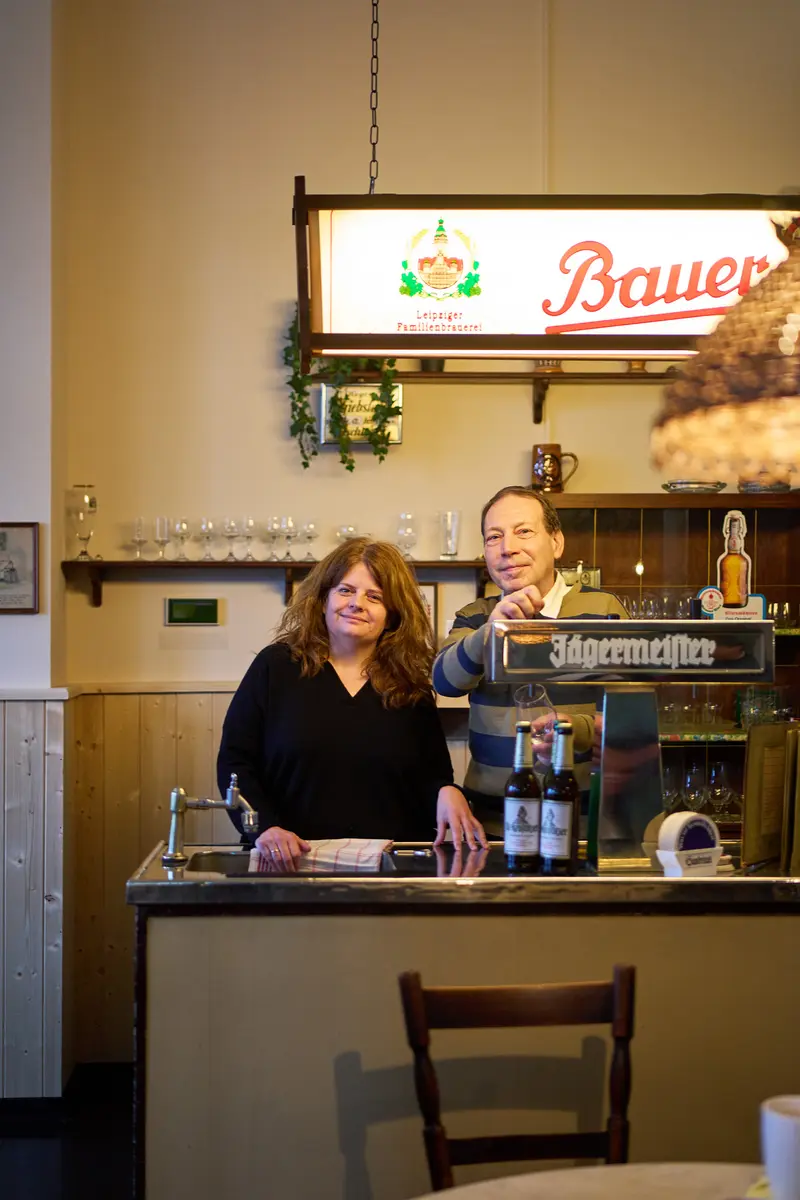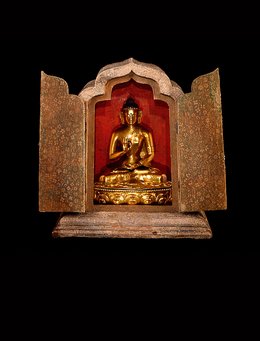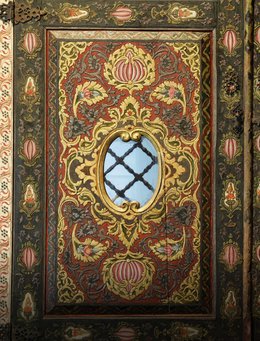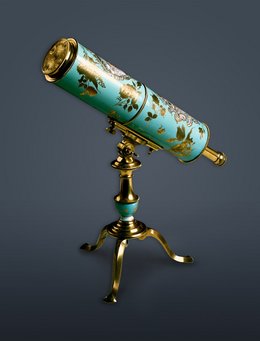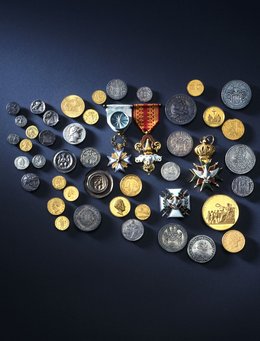In diesem Raum
In this room, we collectively play with these possibilities for you and all of us, resulting in a "Third Space" of encounter and exchange: Feel free to sit in the living room and choose a game. Or immerse yourself in exciting stories with our books. You can also listen to music, watch films or participate in discussions with us at the events that occur here. You can also work on realizing your ideas in the studio. Or have a seat in the "Weißes Roß" (White Horse), a former Leipzig pub that we have rebuilt in the museum. Come in! Bonvenon! It's nice to have you here!
